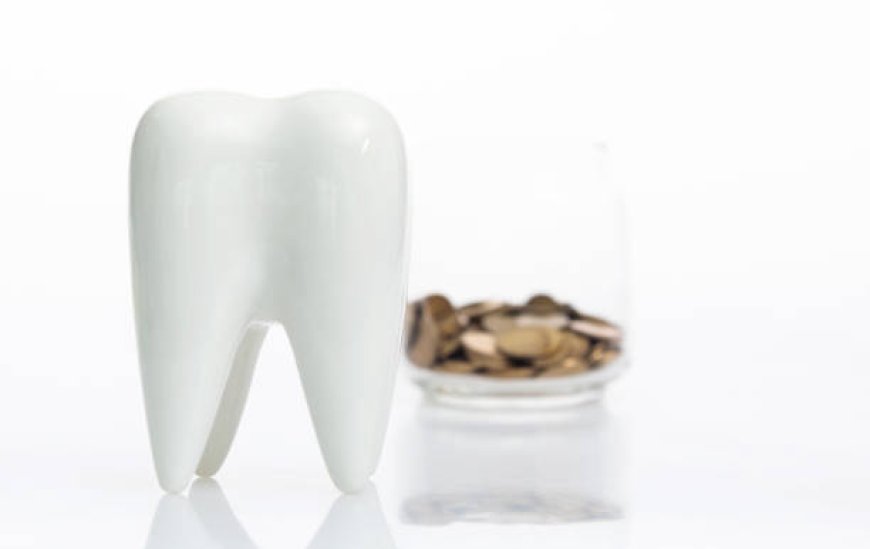Protect Your Investment: Proper Care After a Root Canal Treatment
Protect your root canal investment with expert care tips for faster healing, pain relief, and lasting tooth strength. Read on to learn more.

Root canal treatment involves removing infected pulp from inside the tooth, cleaning the canals, and sealing them to prevent further infection. While the procedure itself relieves pain and removes the source of infection, the tooth will still be vulnerable during the healing phase.
Without proper care, complications such as reinfection, tooth fracture, or prolonged sensitivity can occur. Following post-treatment guidelines helps minimize discomfort, supports healing, and prolongs the life of your tooth.
Immediate Care Right After the Procedure
1. Manage Discomfort and Pain
It’s common to experience mild soreness or tenderness around the treated tooth for a few days after the root canal. Your dentist may recommend over-the-counter pain relievers like ibuprofen or acetaminophen to manage any discomfort. Applying a cold compress to your cheek can also reduce swelling and ease pain.
2. Avoid Eating Until Numbness Wears Off
After your procedure, your mouth may still be numb from anesthesia. Avoid chewing until the numbness completely fades to prevent accidentally biting your cheek, tongue, or lip.
3. Stick to Soft Foods
For the first few days, choose soft, easy-to-chew foods like yogurt, mashed potatoes, scrambled eggs, or smoothies. Avoid crunchy, hard, or sticky foods that could irritate the treated tooth or damage the temporary filling.
Long-Term Care for Your Root Canal Tooth
1. Follow Through with Final Restoration
After a root canal, your tooth is usually sealed with a temporary filling at first. It’s essential to follow up with your dentist promptly for the permanent restoration—most often a crown—that safeguards the tooth against cracking and restores its full strength. In Harrisonburg, VA, many dental offices offer same-day dental crowns, allowing you to protect your tooth quickly without multiple visits. Putting off this important step can leave your tooth susceptible to fractures and possible reinfection.
2. Maintain Excellent Oral Hygiene
Good oral hygiene is your best defense against future problems. Brush your teeth at least twice daily with fluoride toothpaste and floss once a day to remove plaque and bacteria around the treated tooth and the rest of your mouth. Consider using an antibacterial mouthwash if recommended by your dentist.
3. Avoid Excessive Pressure on the Treated Tooth
Avoid chewing ice, hard candies, or using your teeth as tools to open packages. These habits can weaken or fracture the root canal-treated tooth. If you grind or clench your teeth, speak to your dentist about getting a night guard to protect your teeth during sleep.
4. Schedule Regular Dental Checkups
Regular dental visits allow your dentist to monitor the condition of your root canal-treated tooth and catch any potential issues early. Professional cleanings also help keep your mouth healthy and free of infection.
Signs You Should Contact Your Dentist
While proper care usually leads to a smooth recovery, certain symptoms may indicate a problem requiring prompt attention:
-
Persistent or worsening pain several days after the procedure
-
Swelling or tenderness that doesn’t improve or worsens
-
Sensitivity to hot or cold that lingers
-
A recurring pimple or boil on the gums near the treated tooth
-
Loosening or cracking of the tooth or crown
If you notice any of these signs, contact your dentist immediately to prevent further complications.
Lifestyle Tips to Support Healing
-
Stay Hydrated: Drinking plenty of water helps flush bacteria from your mouth and keeps tissues healthy.
-
Avoid Smoking: Smoking can delay healing and increase the risk of infection. If you smoke, try to quit or at least avoid smoking during the healing period.
-
Eat a Balanced Diet: Nutrient-rich foods support tissue repair and immune function, promoting faster recovery.
Final Thoughts: Protect Your Smile Investment
A root canal treatment is a significant step in saving your natural tooth and maintaining your oral health. But your work doesn’t stop when the procedure ends. Proper aftercare is essential to protect your investment, ensuring your tooth heals well, remains strong, and continues to function beautifully.
By following your dentist’s recommendations, practicing excellent oral hygiene, and making smart lifestyle choices, you can enjoy the benefits of your root canal treatment for many years. Remember, your smile is worth the effort!







